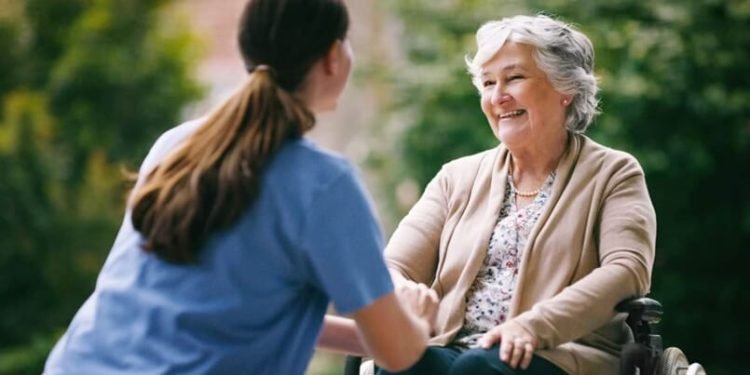Many families are ignorant of the early warning signs that suggest senior care may be something their parents require. While it’s normal for older people to slow down as they become older, there are several warning signals you should be aware of that might signify a more serious issue. Early detection of a senior care need will allow you to take action to address it and ease the transition for everyone concerned. Here are a few methods for figuring out whether your parents need senior care. Remember that this is by no means an entire list; because every family’s circumstances are different, you should always seek expert advice if you have any questions.
Look For Changes In Personality Or Mood
The first sign to watch for is a change in your parents’ conduct. Are they suddenly exhibiting indications of irritation and despair, or have they grown more reclusive? If so, it can be that your parents require assistance in organizing their daily schedule and activities. Furthermore, it could be time to look into elder care choices if you see that they are losing interest in activities they formerly enjoyed or if their worry and stress levels are rising. In addition, if your parents suddenly become energized, it may be a sign that the elder care they are receiving is assisting them in maintaining their health and engaging in life.
Notice Any Physical Decline

Physical abilities often deteriorate as people become older. You may need to provide support for your parents’ safety and well-being if you detect any changes or decline in their mobility, such as difficulties rising from chairs or getting out of bed. Consider whether they are having trouble clothing themselves appropriately since this is another sign that elder care may be required. Additionally, 10% of seniors are believed to take 10 or more drugs, so be careful to monitor any changes in your parents’ prescriptions and make sure they are taking them as directed.
Check for Cognitive Decline
Age can also lead to some mental problems in addition to physical aging symptoms. Watch for memory lapses and disorientation since these might be signs of cognitive deterioration. Seniors may require support with managing their daily routines; keep an eye out for any indications of sadness, such as a loss of energy or enthusiasm. Families are responsible for ensuring that their elderly loved ones receive the proper diagnosis and care. Furthermore, the Senior Site advises that you pay attention to your parents’ moods and any sudden changes in behavior.
Talk to Your Parents Directly

It is crucial to be upfront with your parents about their needs as it could be challenging for them to express themselves. Assess their general welfare by asking them about their physical and emotional well-being. You may determine whether any alterations call for expert care by paying close attention to what they have to say. Getting input from physicians or other healthcare experts who have treated your parents might also offer insightful information about how well their current course of therapy is working. Furthermore, if you are worried about any behavioral alterations, such as disorientation or memory loss, speak with a qualified medical expert for a formal diagnosis. This consultation can be important, as only trained senior health care professionals can provide an accurate assessment of complex conditions. They possess the expertise to differentiate between normal aging and concerning changes, ensuring your parents receive the precise support and medical interventions to maintain their health and quality of life.
Check Their Physical Status Regularly
Seniors’ bodies deteriorate with age, making them more prone to illness. As a result, it’s crucial to keep an eye out for physical symptoms that can point to a medical problem. Examine your parents to see whether they have trouble walking or carrying out routine duties; this might be an indication of deteriorating balance and coordination brought on by worn-out muscles and joints. Also, keep an eye out for any unexpected changes in appetite or weight since these may indicate underlying problems that need to be addressed.
Observe Their Home Environment

The state of the residence where your parents reside could also be a sign that they need senior care. Keep an eye out for any clutter, dirt, or dust that may indicate a lack of housekeeping. Maintain proper medication storage as this shows that your parents are concerned about their health.
Check for Changes in Mental Ability
Watch for indications of cognitive deterioration. Ask questions that call for more than a one-word response; if your parents struggle to carry on a conversation or can no longer speak properly, this may be an early symptom of dementia or Alzheimer’s disease. Check whether bills have been paid on time as well; this is another sign that one’s mental capacity has declined. Pay attention to your parents’ house’s condition as well. If there is a general lack of cleanliness or if rooms are cluttered, it may be a sign that their mental and physical capacity to maintain the home has declined.
Monitor Diet and Nutrition Habits

Watch what your parents are eating; if you’ve observed that their diet has changed significantly over time, it may be a sign that they’ve lost their appetite or are having trouble in the kitchen. It may be a sign that your parents need assistance if they suddenly stopped eating their favorite foods and forgot to take their medications. Additionally, try to keep an eye out for any variations in their bodyweight, both upward and downward; this might point to a medical condition.
Assess the State of Their Finances
Your parents may need assistance managing their finances if you’ve observed that bills haven’t been paid on time or that they’ve started spending money on things they don’t need. Skylark Senior Care facilities frequently offer financial advice and direction to make sure older persons are properly cared for.
Notice Whether They Are Struggling With Everyday Tasks
If you see that your parents are having trouble with routine chores like cleaning the house, cooking, or organizing it, it may be a sign that they need additional help. The way they handle their finances is also important to monitor; if bills aren’t paid on time or money is missing, this may be a sign that senior care services are required.
Conclusion
In conclusion, the methods outlined above can assist you in determining whether your parents require elder care. What course of action is best for your family ultimately depends on you and your family. Find an expert who can collaborate with you to give your aging parents the finest care possible if you sense that there is a problem. Never wait to get started on guaranteeing their security and wellbeing; get in touch with a specialist right now!












